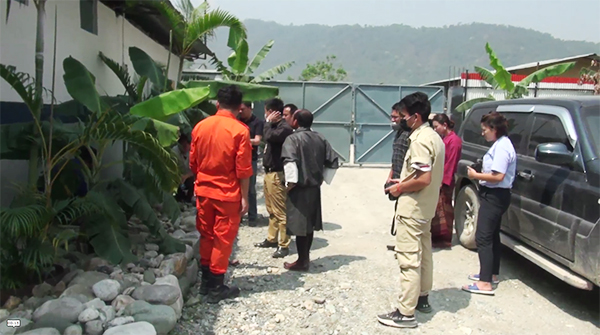 Stakeholders in Phuentshogling are sensitizing the people in thromde about the risk of dengue fever outbreak amid the global pandemic of COVID-19. Health officials warn that people with dengue fever will be more vulnerable to COVID-19 as dengue is known for weakening the immunity of a person.
Stakeholders in Phuentshogling are sensitizing the people in thromde about the risk of dengue fever outbreak amid the global pandemic of COVID-19. Health officials warn that people with dengue fever will be more vulnerable to COVID-19 as dengue is known for weakening the immunity of a person.
Officials from health, thromde and dungkhag are meeting with the workshop owners and workers at construction sites regarding the risk of dengue fever outbreak.
Last year, most of the sources of larvae formation were found in these areas.
The highest case of dengue fever was recorded last year with 6,000 people testing positive. Phuentshogling reported 80 per cent of the total infected and more casualties than any Dzongkhags combined. Four patients succumbed to the fever in the thromde from a total of six casualties reported in the country.
In order to avoid such an outbreak at a time when the country is trying to prevent the spread of COVID-19, the dengue task force team has started to work on it.
Dr Kinley Gyeltshen from the Phuentshogling hospital said that the health service providers would be hit hard if there is a case of dengue fever outbreak amid the COVID-19 pandemic. “If in case there is an outbreak, from the hospital’s side, we are working on contingency plans on how to combat it,” he said.
According to the hospital, most of the larvae were found inside old tyre, flowerpots and stagnant drains. People are asked to keep their surrounding clean. For stagnant water, the hospital is asking people to contact them in order to avail the chemical which will stop the growth of larvae into a mosquito.
According to the Thrompon, the thromde in collaboration with the hospital, dungkhag and other stakeholders are working together closely.
Uttar Kumar Rai, the Phuentshogling Thrompon said that it’s everyone’s responsibility to prevent the outbreak of the fever. “We can then combat dengue outbreak together. Otherwise, we are helpless. Unlike last year, we want to have zero infected this time. To achieve this, we want the support from the public and I am sure they are always there to share the responsibilities,” he said.
Aedes aegypti– a mosquito with white markings on its legs spreads the dengue fever. Symptoms of dengue are fever, joint pain, stomachache, vomiting and unusual bleeding. The mosquito population reaches its peak during the rainy season.
Sonam Penjor







